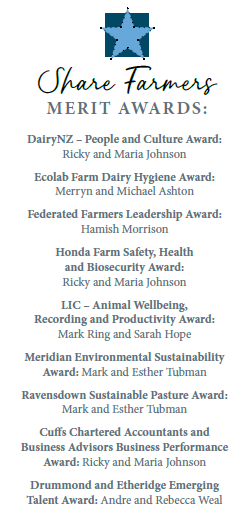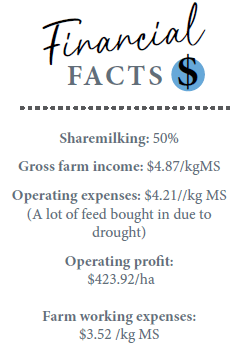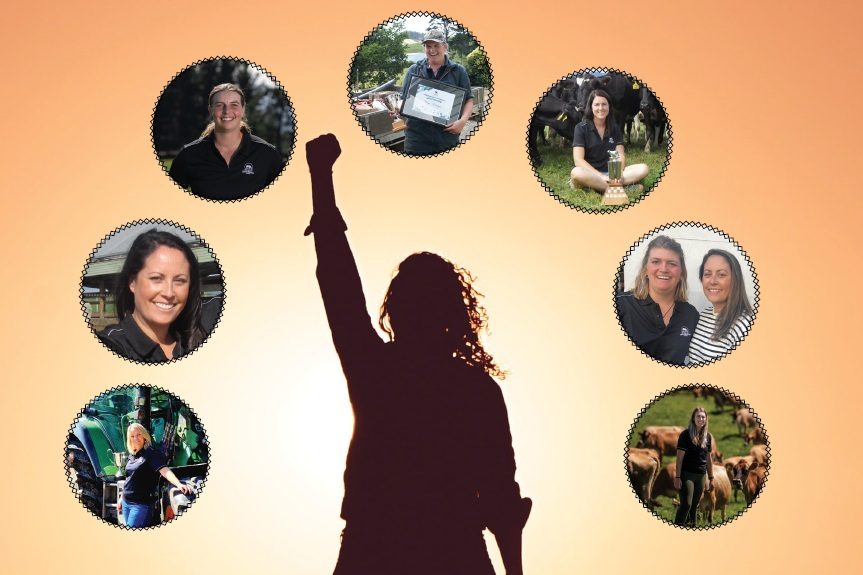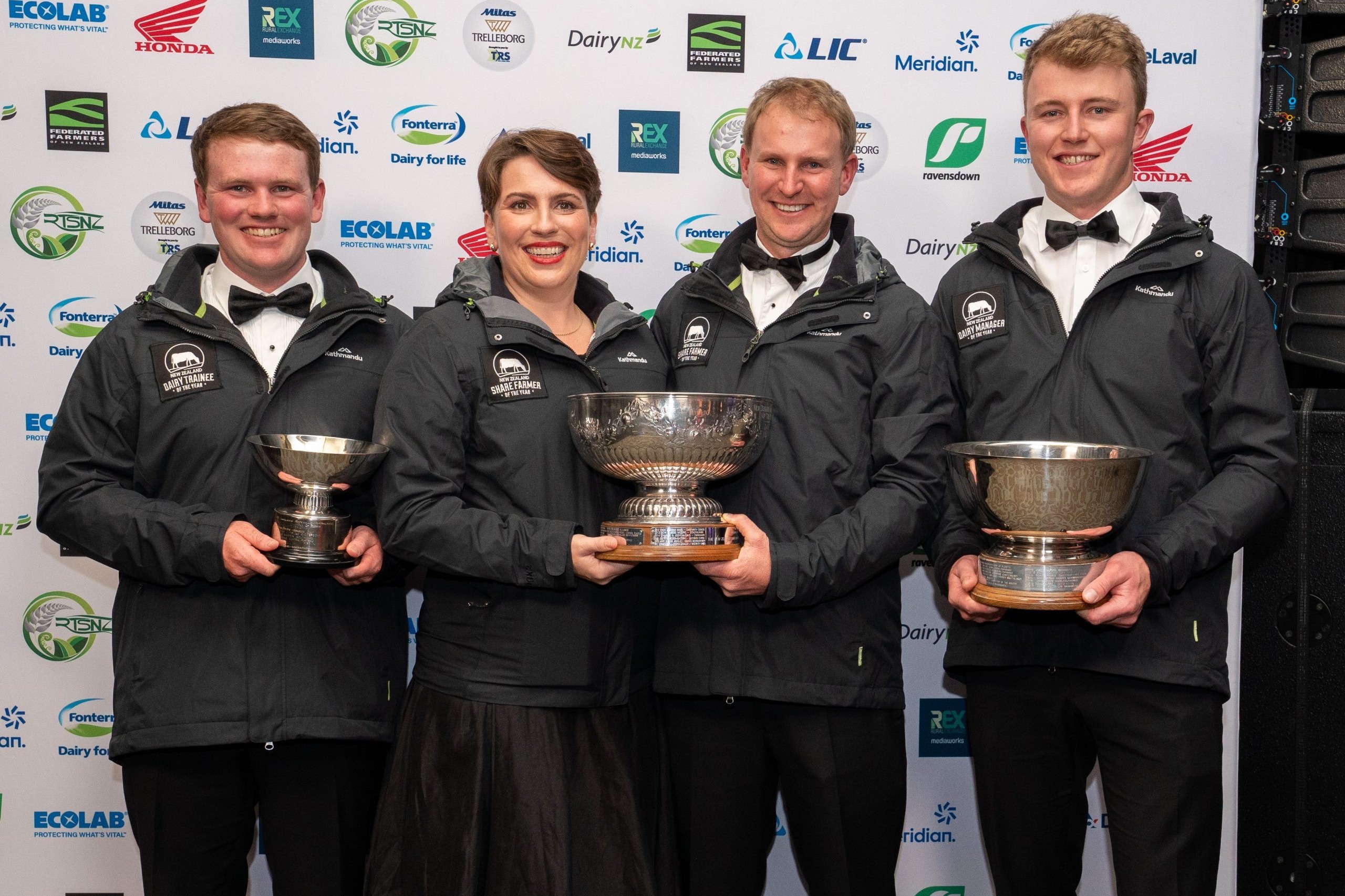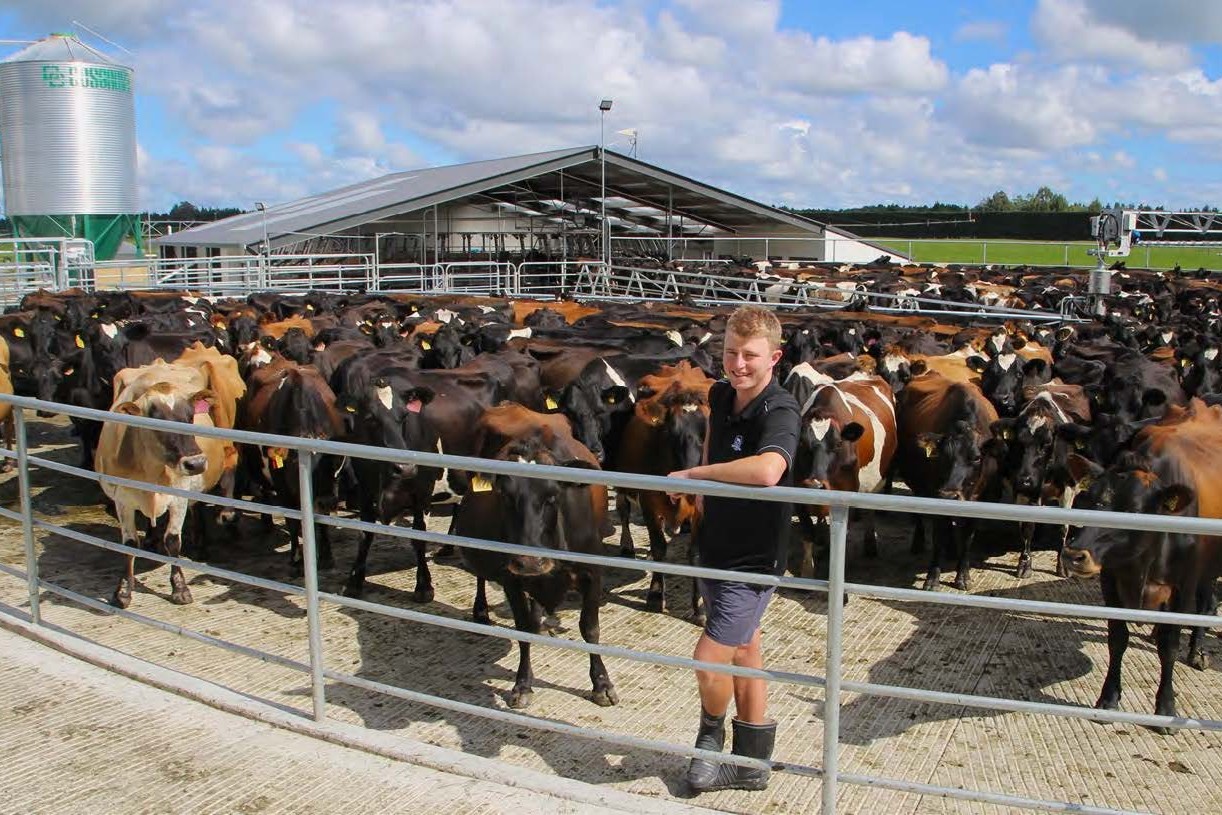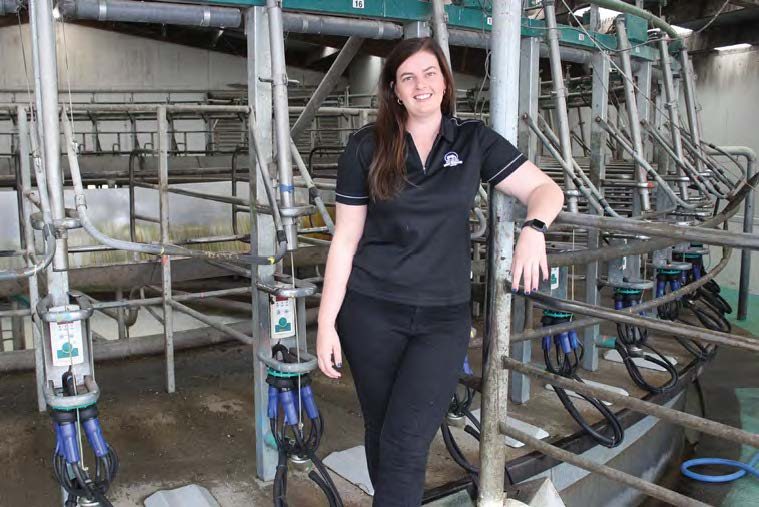Giving the girls a scratch
Ricky & Maria Johnson - West Coast/Top of the South Share Farmers of the Year. By Anne Hardie.
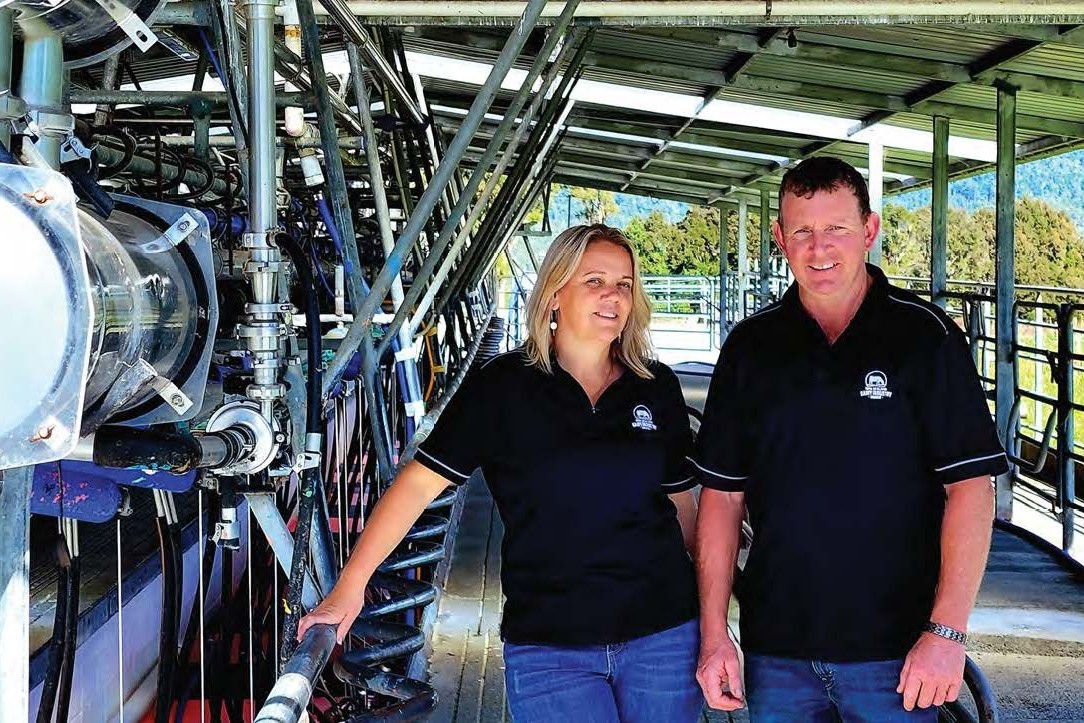

Love for their stock is the biggest driver for the West Coast/Top of the South Share Farmer of the Year winners Ricky and Maria Johnson.
The Maruia couple have competed in the competition once before, but it has taken 15 years for them to tackle it again and they did it to improve their business and help achieve their goal of farm ownership.
It is a goal that revolves around their stock, not just for the financial gains from doing it right, but because they love their animals and giving the quiet ones a scratch as they head into milking is important to them. That includes having staff with the same attitude who give the girls a scratch as well.
The couple are 50:50 sharemilkers on Robb and Jane Macbeth’s 194-hectare Maruia farm where they milk 420 cows. Two years ago they were contract milkers and within five years they plan to own their own West Coast farm. That may be through leasing a farm first, lease-to-buy arrangement or another 50:50 sharemilking contract to build equity and get them over the line to secure the finance for their own farm.
Ricky grew up on the Coast, at the northern tip on a Karamea dairy farm and left school to work on another dairy farm in Golden Bay. He met Maria in the Bay and they worked their way up through the ranks to become contract milkers, before deciding it was time for a break.
For the next nine years Ricky drove trucks. By then they had two young boys and he decided he was missing too much of their childhood because he was on the road and returned to dairying.
Their path led them to a Dairy Holdings farm at Springs Junction as contract milkers and then two seasons ago they decided they needed to find a 50:50 sharemilking contract if they were ever going to buy their own farm.
Maria says their accountant pushed them to make the move and told them to find a job they love and make money. It was the prod they needed to step up to sharemilking. The timing was right with both boys now grown up and flown the coop, which prompted a renewed focus on chasing their goal.
They had to take a leap of faith to give up contract milking and go sharemilking because their contract required them to give notice in December and when they did that, they had no job lined up to go to. Everything worked out, though, with a sharemilking offer from the Macbeths and both their staff going with them to the new farm.
When they moved up to the sharemilking contract, they had 141 cows leased to Dairy Holdings which they were able to take with them and they bought 300 Jersey cows from Mt Ella Station when the large-scale dairy farm was sold to a grower in the hop industry.
Maria is part of a family trust and when they were buying the cows, her brother suggested the trust lend them money for the purchase which meant they could get finance at a lower interest rate.
Now their focus is on breeding to improve the value of their herd and build equity. One of the benefits of their sharemilking contract is they can keep their young stock on the farm where they can graze a terrace on the hill block behind the milking platform and other nooks and crannies.
“We’re really lucky to have our young stock here,” Maria says. “It’s more work, but it’s nice to have control of your own animals and watch them grow – and make sure they grow.”
Their two staff are integral to their business. Kerrin Miller has stayed with them for six years and Isaac Friedlich three years, moving with them to the new farm.
“We’re really lucky they have stayed with us,” Ricky says. “They really help us with our business and make it easier for us. They’re part of the family now.”
The farm had a good house for sharemilkers, but the other house for staff was at the end of its days – reputedly the oldest house in the Maruia Valley. It prompted Maria and Ricky to swap houses so Kerrin’s family with young children could have the good house.
“It made sense to change because they had young kids and were home all day.”
Maria and Ricky are winning now, though, because a new house is in the pipeline to replace the old one tottering on its piles. Spring rosters have been organised to better suit staff also. They have a five-day-on, one-day-off roster one week, followed by six-days-on and two-off the next. Kerrin with young children gets a Thursday off one week and then Thursday and Friday off the following week. That enables him to go to school events if they want. Meanwhile, Isaac, who likes a social life, gets a Sunday off one week and then Sunday and Monday off the following week – so he can socialise on a Saturday night.
“We had a chat with them to see what suited them,” Maria says.
“Having staff that stay means you aren’t always training people and doing inductions and you get to know them well. We’re all responsible for keeping each other safe and because they have been with us for so long, they know that. They also know the pet cows and know to give them a bit of a scratch before they go in for milking.”
Hence, they were pretty chuffed to win the DairyNZ People and Culture merit award. The award process was never about winning though; it was purely about their business and it has given them more clarity on how to achieve their goals.
“We have a better direction on where we want to go and how we want to get there,” Maria says. “We needed to make sure we were both on the same page about how we were going to own our own farm on the West Coast.
“If you go to a bigger farm, you don’t necessarily milk the cows, but we want to be milking our own cows. And I think the West Coast is unique because there’s a lot of farmers willing to help you get there.”
Ricky says farms on the Coast can be hard to sell which means farmers wanting to sell are beginning to offer options such as equity partnerships and leasing-to-own to make it work for both parties. Some buyers will not even consider the West Coast, but Ricky and Maria only see opportunity.
“It is harder work on the Coast, but it gives you something to do. Keeps you off the streets!”
On the farm, they cannot afford the latest technology as sharemilkers, but the one thing they do have and are extremely happy to have, is an electronic identification (EID) reader.
“I love our EID reader,” Maria says. “We don’t have a lot of technology, but the Gallagher EID reader is a game-changer and is linked into Minda to keep on top of our records. It works really well with NAIT too.”
Xero and Figured also help the business run smoother. The accounting software enables them to update information such as budgeted milk production and they “talk to each other” to give them the new status of the business. It is also used to pay GST monthly. Maria says people often like to pay GST every second month, but they would rather pay smaller monthly payments.
They are at a stage where they can both work full-time on the farm together which has fortunately worked well. Maria says it has been good to be able to focus on their business as it was a challenging phase socially when their kids left home.
“When you have young children or children at school, you meet a lot of people with children. But when you leave that stage you think, what am I going to do? That’s a hard one in a rural area and it can be quite lonely.”
Entering the awards has been good in that respect and even though it created a lot of work for them, Maria and Ricky say it has been a good project and that was more important than winning.
“We’re more into seeing what we are doing and what we can do better,” Ricky says.
The hardest part of the competition, held at Shantytown near Greymouth, was the thank-you speech when they won.
“Absolutely terrified,” Maria says. “We argued about it on stage which was pretty terrible!”
The runner-up in the share farmer category was 35-year-old Hamish Morrison, who is contract milking on a 406-cow Rai Valley farm. Third placegetter was awarded to Mark and Esther Tubman who are contract milking on a 350-cow farm near Takaka.
